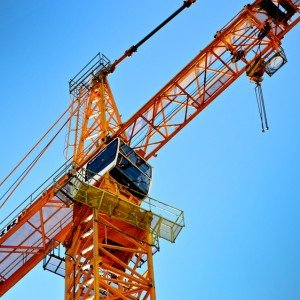Marcus de Guingand from Third Pillar of Health, looks at managing fatigue in the workplace. He explores some of the common findings in respect of fatigue in construction, delves into some of the consequences and looks at how you can help reduce this hidden problem.
For a while now, health and safety professionals within the construction industry have recognised the importance of tackling health issues and not just concentrating on safety.
What are the issues in the construction industry and what are the results?
 In numerous conversations with the construction industry in the UK and the US as well as work we’ve done with employees at construction firms we’ve identified several clear industry trends. These include:
In numerous conversations with the construction industry in the UK and the US as well as work we’ve done with employees at construction firms we’ve identified several clear industry trends. These include:
- Insufficient and poor-quality sleep;
- Long commutes and long working days, which induce fatigue and don’t allow sufficient time to achieve adequate sleep;
- Driver fatigue is common, especially in managers and policies on overnight stop-overs are often ignored;
- The transient workforce makes poor lifestyle choices away from home and do not prioritise rest when back at home.
As a result, we commonly see issues including: poor health; increased levels of stress and declining mental health; impaired decision making; driver fatigue – including accidents and near misses whilst commuting; strained personal and professional relationships; impaired cognitive performance and executive functioning; reduced co-ordination; high levels of driver fatigue as well as poor communications.
It’s easy to see how these feed through to poor performance and productivity, whether at manager level or at operative level – especially those in using heavy plant and in safety-critical roles. These issues also affect home and family life. You can build a coherent line between fatigue and: substance abuse; domestic violence; divorce and other societal issues.
What data have we found?
Having run our online sleep health self-assessment for 126 managers across four construction firms we have found that:
- Average sleep duration prior to a workday is just 6 hours 28 minutes;
- 64% of managers sleep for less than seven hours a night prior to a workday (27% less than six hours);
- Total average sleep duration over a working week is six hours 50 minutes;
- 88% of managers are carrying a sleep debt and failing to achieve the sleep they need over the week;
- 32% of managers have either been diagnosed with or are at risk of insomnia;
- 62% of managers do not feel as though they achieve enough sleep with work worries, personal worries and not having enough time being the most common reasons).
This paints a gloomy picture of sleep health in construction managers. Insufficient and poor-quality sleep has a major impact on our physical and mental health. It impairs our cognition, thinking and executive functioning. We need construction managers to be making smart decisions in fast-moving situations.
What else do we commonly see in construction?
At management level, as part of an ingrained industry culture, we frequently see long hours, early and late meetings, long commutes (often on the back of a full day’s work) as well as expectations to maintain out of hours communication. It is therefore unsurprising that sleep duration and quality suffer as a result.
 When we think about construction workers we intuitively understand that a tired crane or heavy plant operator can be a significant risk. We’ve run numerous face-to-face training sessions for construction workers, where by a straw poll we estimate over 80% of workers are not obtaining sufficient good quality sleep.
When we think about construction workers we intuitively understand that a tired crane or heavy plant operator can be a significant risk. We’ve run numerous face-to-face training sessions for construction workers, where by a straw poll we estimate over 80% of workers are not obtaining sufficient good quality sleep.
This is more pronounced on sites where much of the workforce is transient. Prior to the first day of a shift the worker will wake up in the very early hours and travel a long distance to the place of work. They’ll often live in digs during the week, which, if in a major city could be far from the site due to living costs requiring a long commute before and after a shift.
Whilst attitudes to healthy living are changing there is still a temptation to skip the gym visit (if tired after a shift), enjoy a couple of drinks with colleagues after work and then perhaps find some fast food before going to bed. Single rooms in multiple occupancy digs also means we are more likely to stare in to tablets or smartphones in the period immediately before bed – catching up with friends, family, looking through social media or streaming the latest box set. All these choices impact the quantity and quality of the sleep we obtain.
What other risks are common in construction?
As previously discussed, workers working at height, operating heavy plant or in safety-critical roles present a major safety risk if their co-ordination and ability to think clearly are impaired.
Managers who drive regularly are at serious risk of driver fatigue. In one worker group we assessed two thirds of managers who drove in excess of 2.5 hours a day had felt drowsy whilst driving at least a few times a month. 33% of that group had had a near miss due to fatigue.
Managers cannot be expected to function at optimal levels on the back of poor quality and short sleep. We expect managers to make important decisions in fast-moving situations. The accuracy of decisions will decline as fatigue increases. In the best-case scenario this adds time and cost to a project. It’s easy to imagine a host of worst-case scenarios.
The construction industry has done some great work trying to tackle mental health. But if your staff are fatigued they are more prone to poor mental health and the risk of burnout increases.
Fatigue causes
There is no silver bullet. You need a methodical approach. This should start with a baseline assessment to understand the extent, impact and causes of tiredness and fatigue. From there you can amend policies, run education programmes, train key managers and look at other possible interventions.
In the organisation where we saw a risk of driver fatigue the site manager immediately introduced a policy for managers with long commutes whereby the company would pay for up to two nights of accommodation in a local hotel if that employee felt it would help them obtain better quality rest.
Running educational sessions for construction workers and managers is a great way to raise awareness and give staff the knowledge they need to make informed decisions around sleep and find better diagnosis and treatment pathways to address serious sleep issues. This is commonly done in conjunction with existing services such as occupational health and employee assistance programmes.
We’ve even seen initiatives such as banning energy drinks from canteens and providing decaf tea and coffee options in kitchenettes. There are free tools which can help identify shifts where the risk of fatigue increases. They are not perfect but are helpful and widely used.
I accept that changing the industry culture is going to take some time but if we want better decisions, fewer errors, better physical and mental health as well as reduced burnout then it’s a path worth heading down.
In some of the more forward-thinking projects I am also discussing initiatives that might encompass fatigue forecasting algorithms, controlled rest and light therapy for certain worker groups.
Ultimately there are a range of options to tackle this hidden issue which can neatly fit to your available budget.
The Safety Conversation Podcast: Listen now!
The Safety Conversation with SHP (previously the Safety and Health Podcast) aims to bring you the latest news, insights and legislation updates in the form of interviews, discussions and panel debates from leading figures within the profession.
Find us on Apple Podcasts, Spotify and Google Podcasts, subscribe and join the conversation today!

 In numerous conversations with the construction industry in the UK and the US as well as work we’ve done with employees at construction firms we’ve identified several clear industry trends. These include:
In numerous conversations with the construction industry in the UK and the US as well as work we’ve done with employees at construction firms we’ve identified several clear industry trends. These include: When we think about construction workers we intuitively understand that a tired crane or heavy plant operator can be a significant risk. We’ve run numerous face-to-face training sessions for construction workers, where by a straw poll we estimate over 80% of workers are not obtaining sufficient good quality sleep.
When we think about construction workers we intuitively understand that a tired crane or heavy plant operator can be a significant risk. We’ve run numerous face-to-face training sessions for construction workers, where by a straw poll we estimate over 80% of workers are not obtaining sufficient good quality sleep.